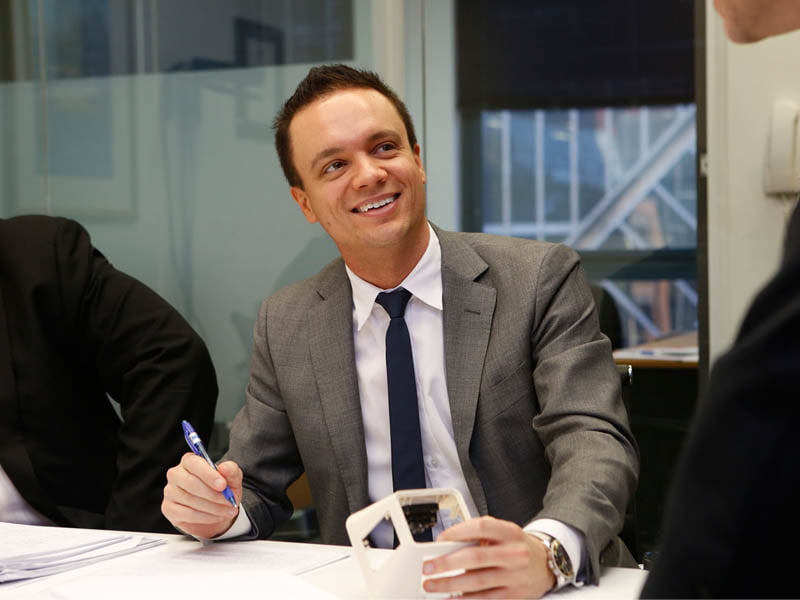The Productivity Commission has been instructed to undertake an investigation into Australia’s intellectual property arrangements, including their effect on investment, competition, trade, innovation, and consumer welfare.
The Treasurer Joe Hockey and Small Business Minister Bruce Billson said yesterday they expected the inquiry to look at whether the nation had struck the right balance between promoting competition and protecting intellectual property, while considering out international trade obligations.
The 12-month inquiry will be the first economic evaluation of Australia’s IP arrangements in decades, and was a key recommendation of The Competition Policy Review conducted by Ian Harper and handed down last April.

“Our intellectual property arrangements can have effects on investment, competition, trade, innovation and consumer welfare,” Mr Hockey said in a statement on Tuesday. “Our approach to intellectual property is vital to encouraging Australia’s future productivity and economic growth.”
“We need competitive and flexible arrangements to support businesses to strive for efficiency and innovation.”
The inquiries Terms of Reference have already raised eyebrows, most notably over its instruction that the PC look at the “scope and duration of protection” afforded by the Australian system on things like research and innovation, the cost of goods and services, as well as competition, trade and investment.
“The global economy and technology are changing and there have been increases in the scope and duration of intellectual property protection,” the inquiry backgrounder says. “The Australian Government seeks to ensure that the appropriate balance exists between incentives for innovation and investment and the interests of both individuals and businesses, including small businesses, in accessing ideas and products.”
The statement raised immediate concerns among intellectual property experts, if only because it intimates that IP protections somehow stand in the way of innovation, rather than being the bedrock on which new innovation is built.
Leading patent attorney Chris Baxter from Baxter IP says Australian law currently provides strong protections for innovators. But he questions the assumption that the scope of protections has been increasing.
“The IP Laws Amendment (Raising the Bar) Act 2012 makes it more difficult to obtain a patent and IP Australia’s unilateral stance on the software patenting of business systems makes patenting in that field more difficult,” Mr Baxter said.
He says that because of these changes – as well as economic factors – the number of Australian patent applications filed in 2014 decreased by 13 per cent from 2013. Sadly, the largest decrease was seen amongst filings by Australian residents.
The referencing of the impact of an increased duration of patents raises the issue possible IP provisions in Trans-Pacific Partnership, in which it is understood the United States negotiating position holds out for extensions to patent terms. The last time Australia extended the duration of IP laws was early years of the Howard years with the signing of the Australia-US free trade agreement.
As we move deeper into the information age, a strong, accessible and ultimately flexible intellectual property regime is paramount. It is increasingly the foundation for trade success.
In making any recommendations the Productivity Commissioner has been asked to examine “the relative contribution of imported and domestically produced intellectual property to the Australian economy, for example to Australia’s terms of trade and other economic impacts of IP protection, including on inward investment.”
In doing so, it has been asked to take into account the Government’s desire to retain incentives for innovation and investment, including innovation that builds on existing work. It’s a fine line.
Mr Baxter maintains the current system is pretty good, but the falling number of patent applications by Australian residents needs to be addressed. Some innovators are simply filing for IP protection in other markets – literally they are cementing the product of brain drain into foreign markets.
A difficult system will merely cede ground to foreign filers – an issue that has balance of trade implications for a country like Australia as we participate fully in the global digital economy.
Mr Baxter says government needs to take a broad view of the support it provides the local IP infrastructure – and that includes improved support for local startups and innovators.
This should not be in the form of subsidising patent filings – but rather in creating better awareness and education models. Mr Baxter said better understanding of Intellectual Property and the specific value of IP should be learned in high school.
Better understanding of IP at an earlier age would translate to a better understanding of the commercialisation process across all high school graduates, which is key to creating a more entrepreneurs, and better innovation outcomes, he said.
Do you know more? Contact James Riley via Email.

